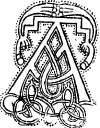Ollamhs

CERTAIN writer boldly tells his readers that there were three class of judges, the Ollamh (pronounced Ullav) being the highest or chief judge. Most other authorities on the subject say that the brehons were judges, the ollamhs professors or teachers of law. The latter view is correct subject to the following observations. Every brehon was an ollamh, inasmuch as he was obliged to obtain the degree of ollamh before he could become a brehon. Hence a man might practise as a brehon and teach law in his own house as an ollamh; and one who had distinguished himself in both these respects might be regarded as, in a sense, a chief judge. But the use of that designation is misleading. Both ollamhs and brehons might as well be called bards on the ground that both were obliged to take a degree in poetry. A loose application tends to involve those terms in the confusion from which we have just taken the trouble to extricate them. Ollamh practically meant a doctor, professor, or teacher of any branch of the Filidecht taught in the higher schools. It meant a possessor of knowledge whose profession it was to impart that knowledge. The right to the distinction was acquired by a course of study extending over twelve years' "hard work," followed by a public examination; and the distinction was formally conferred by the king or chief of the district; after which the ollamh ranked next to the king or chief in the order of precedence, acquired a number of valuable privileges, was respected by the community, and highly favoured by the law. Every king or chief who could afford it selected one distinguished ollamh of each branch of knowledge, and maintained this staff of specialists at his court in order to be able to deal with all matters affecting his interests and those of his people. These men were very generously provided for, indeed extravagantly one would think. Other ollamhs made their living by teaching independently.

